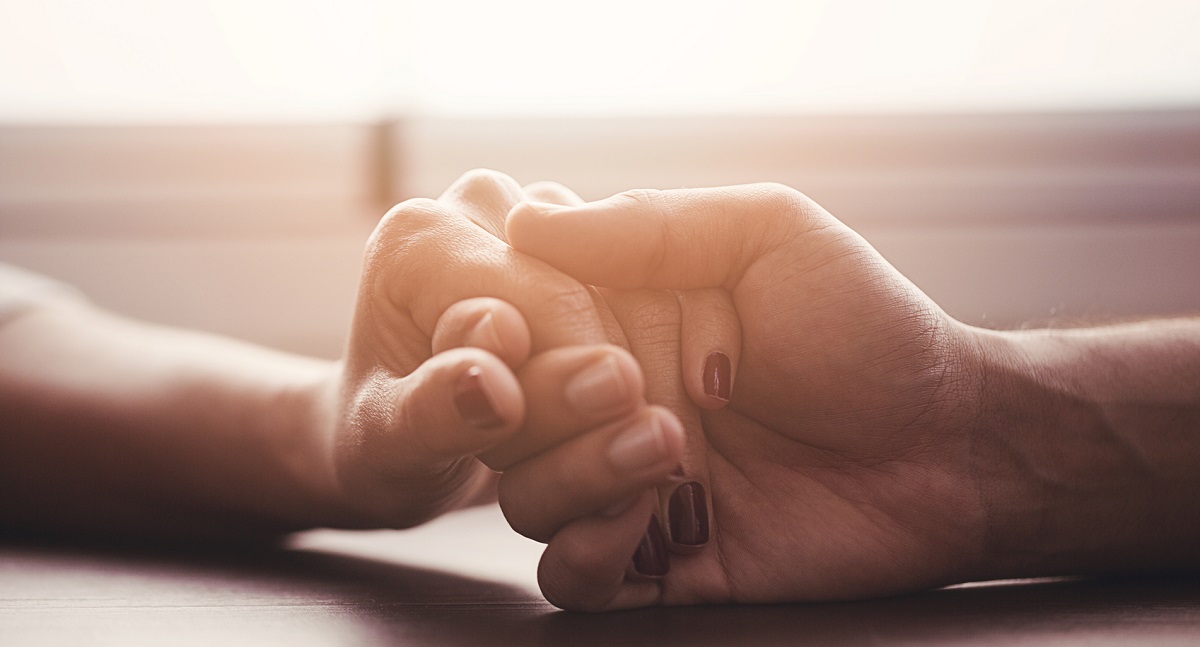Contact Us
“I don’t want us to be afraid of adversity,” my husband says.
We’re in the van, on our way home from church, of course, because that’s when many of our fights happen, the boys in the back eating granola bars and my face in my hands.
Trent reaches an arm out, touches my sleeve. “We can still be a team and disagree,” he says. “Being a team doesn’t mean being the same. It means working together to find a unified front, and presenting that front to the world.”
We’re arguing about something small, but to me it represents something bigger – because you know those couples, the ones that never fight about anything, the ones who laugh endearingly at each other’s jokes and say, we’ve never disagreed in our lives?
Yeah, well, that hasn’t been us. Our first year of marriage can be described by the holes in our walls – holes which I punched, because I found being married so difficult and not because of the man I’m married to. No, he’s an incredible farm boy who loves God and family and cooks me breakfast and makes me laugh until I snort.
No, it’s because I find it hard to share anything, period. I find it hard to share my closet, my bed, my heart because I’ve been hurt too many times and I’m scared of pain. I’m scared of being let down by someone and I’m scared of suffering.
But to love means to suffer. There’s a certain denying of one’s self so there might be new life.
In the same way that cutting flowers’ stems allows them to drink more water and last longer – cutting our selfishness allows us to absorb more grace.
As Woody Allen says, “To love is to suffer. To avoid suffering, one must not love. But then, one suffers from not loving. Therefore, to love is to suffer; not to love is to suffer; to suffer is to suffer.”
To love someone doesn’t mean you’ll agree all the time or find each other adorable or witty all the time. It doesn’t mean you never fart or have bad breath, it doesn’t meant that you won’t struggle to even LIKE the person some days. And it doesn’t mean you won’t make mistakes.
Love means for better or worse you are committed to caring for the heart of someone else. You are willing to die to yourself, to compromise, to share, to believe, to keep the promise even when it hurts.
For the first three years of our marriage, I starved myself. And my husband suffered silently, watching me get skinnier and skinnier, and when he touched me he nearly cried for the bones I’d become. I couldn’t sleep – he set up a TV in our bedroom because that’s the only way I could doze, was in front of a screen, but as soon as he quietly shut it off, I would wake up and spend the night tossing and turning and eventually move to the couch.
I was addicted to sleeping pills and coffee and one day, three years after getting married in my parents’ backyard, Trent told me he couldn’t do it anymore.
We’d been screaming at each other, driving home from a friend’s house, and I was at the wheel and tried to turn the car into traffic. Trent took hold of the wheel and pulled us over to safety. I sobbed into my hands and he said, “Emily, I can’t do this anymore. I need you to choose between me and food – because if it’s food, I’m out.”
He forced me to choose because he cared about me. We were both suffering and love stepped in and asked a difficult thing.
And now we have two beautiful little boys together. Because that is what the act of loving makes – it creates life.
Contrary to what we’ve heard, love is not a feeling. It’s a choice.
Let’s not be afraid of adversity.
Let’s keep the promise – growing wrinkled and old and crazy together, and see what God can do when we surrender two broken hearts to him.
He’ll make us shine.
Emily Wierenga is wife to a math-teacher husband; mother and foster mother to four boys; an artist, columnist and the author of Chasing Silhouettes: How to help a Loved One Battling an Eating Disorder, Mom in the Mirror: Body Image, Beauty and Life After Pregnancy and A Promise in Pieces (Spring 2014). Emily speaks at women’s retreats, universities, churches and conferences, about her journey with anorexia nervosa, and was one of the keynote speakers at the premiere Christian eating disorders conference, Hungry for Hope 2013. Shelives in rural Alberta, where she snowboards, makes wine and goes geocaching. She also plays guitar and paints.For more info, please visit emilywierenga.com. Find her on TwitterorFacebook.
